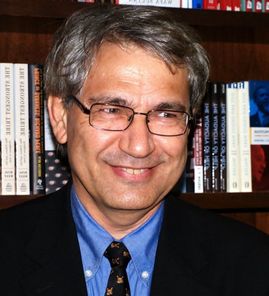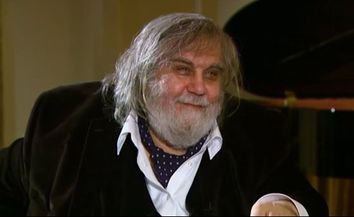Turkey
|
Ferit Orhan Pamuk
Generally known simply as Orhan Pamuk; born 7 June 1952 is a Turkish novelist, screenwriter, academic and recipient of the 2006 Nobel Prize in Literature. One of Turkey's most prominent novelists,[1] his work has sold over thirteen million books in sixty-three languages,[2] making him the country's best-selling writer. Pamuk is the author of novels including The White Castle, The Black Book, The New Life, My Name Is Red, Snow, The Museum of Innocence, and A Strangeness in My Mind. He is the Robert Yik-Fong Tam Professor in the Humanities at Columbia University, where he teaches writing and comparative literature. |
Montenegro
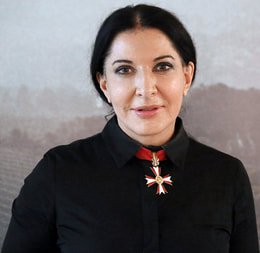
Marina Abramović
Abramović was born in Belgrade, Yugoslavia on November 30, 1946. Her great-uncle was Varnava, Serbian Patriarch of the Serbian Orthodox Church. Both of her parents were Yugoslav Partisans during the Second World War. Her mother was Danica Rosić and her father was Vojin Abramović. After the war, Abramović's parents were "national heroes" and were given positions in the post-war Yugoslavian government. In an interview, Abramović described her family as having been "Red bourgeoisie.
Abramović was born in Belgrade, Yugoslavia on November 30, 1946. Her great-uncle was Varnava, Serbian Patriarch of the Serbian Orthodox Church. Both of her parents were Yugoslav Partisans during the Second World War. Her mother was Danica Rosić and her father was Vojin Abramović. After the war, Abramović's parents were "national heroes" and were given positions in the post-war Yugoslavian government. In an interview, Abramović described her family as having been "Red bourgeoisie.
Greece
|
Evanghelos Odysseas Papathanassiou
He is known professionally as Vangelis, is a Greek composer of electronic, progressive, ambient, jazz, and orchestral music. He is best known for his Academy Award-winning score for the film Chariots of Fire, composing scores for the films Blade Runner, Missing, Antarctica, 1492: Conquest of Paradise, and Alexander, and the use of his music in the PBS documentary Cosmos: A Personal Voyage by Carl Sagan. |
UK
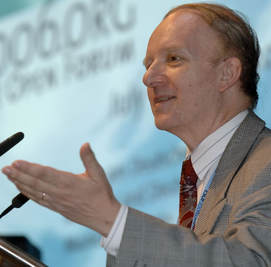
Jean-Patrick Connerade
Jean-Patrick Connerade, is emeritus professor of physics at Imperial College London, UK, and the president of the European Academy of Sciences, Arts and Letters (EASAL). He is also a poet in his own right, writing in French, under the pen name of Chaunes. He is also a former president of EuroScience.
Jean-Patrick Connerade, is emeritus professor of physics at Imperial College London, UK, and the president of the European Academy of Sciences, Arts and Letters (EASAL). He is also a poet in his own right, writing in French, under the pen name of Chaunes. He is also a former president of EuroScience.
Bosnia and Herzegovina
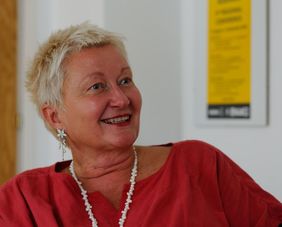
Dr. Svetlana Broz
Dr. Svetlana Broz is a cardiologist, author, filmmaker and lecturer, founder and Executive Director of NGO Gariwo.
She works in Sarajevo where established unique in Europeeducational program on civil courageto mobilize the bravery of individuals to oppose ethnicand religiousprejudice, bigotry, corruption, intimidation,inhumanity and violence.
Dr Broz is founder of Dusko Kondor Civil Courage Award.
Lecturer at over 150 universities in USA and Europe including Harvard U. - Kennedy School of Government, Yale U., UC Berkeley, UCLA, Stanford U., Boston U., Tufts U., Boston College, Wellesley U., Haverford, Dartmouth College, Dickey Center, Indiana College, University of Virginia, University of Wisconsin, Hampshire College, Wittenberg University, Antioch College, UC Santa Barbara, Santa Clara University, San Jose State University, Monterey Institute of International Studies, and also in London, Berlin, Geneva, Lausanne, Graz, Prague, Milan, Bolzano, Warsaw, Trento, Verona, Arco, Rimini, Forli, Bologna, Amsterdam, Den Hague, Orebro, Malme, Varnamo, Norrkoping, Goteborg, Braunschweig, Marseille, Sesto San Giovanni, Lillehammer, Oslo, Munchen, Stockholm, Edinburgh.
Dr. Svetlana Broz is a cardiologist, author, filmmaker and lecturer, founder and Executive Director of NGO Gariwo.
She works in Sarajevo where established unique in Europeeducational program on civil courageto mobilize the bravery of individuals to oppose ethnicand religiousprejudice, bigotry, corruption, intimidation,inhumanity and violence.
Dr Broz is founder of Dusko Kondor Civil Courage Award.
Lecturer at over 150 universities in USA and Europe including Harvard U. - Kennedy School of Government, Yale U., UC Berkeley, UCLA, Stanford U., Boston U., Tufts U., Boston College, Wellesley U., Haverford, Dartmouth College, Dickey Center, Indiana College, University of Virginia, University of Wisconsin, Hampshire College, Wittenberg University, Antioch College, UC Santa Barbara, Santa Clara University, San Jose State University, Monterey Institute of International Studies, and also in London, Berlin, Geneva, Lausanne, Graz, Prague, Milan, Bolzano, Warsaw, Trento, Verona, Arco, Rimini, Forli, Bologna, Amsterdam, Den Hague, Orebro, Malme, Varnamo, Norrkoping, Goteborg, Braunschweig, Marseille, Sesto San Giovanni, Lillehammer, Oslo, Munchen, Stockholm, Edinburgh.
United States of America
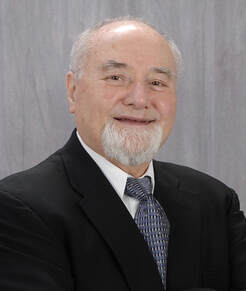
Prof. Philip Shashko
Philip Shashko was born in the village of Breznitsa, known today as Vatochori, Greece, in 1936, of Slavic heritage. He received his undergraduate degree at Michigan State University, his master’s degree in History at the University of California-Berkeley, where he studied Russian history, and his PhD in history from the University of Michigan-Ann Arbor with a certificate in Russian Studies. He taught Russian, Balkan and European history at the University of Wisconsin-Milwaukee for 43 years, from 1968 to 2011. He has lived or traveled extensively in Russia and all of the Balkan states. He has tried to convey through his teaching and research the unity of Balkan history, despite the nationalism of the 19th and 20th centuries, while also expressing the similarities and diversity of Balkan culture. His primary focus teaching Balkan history has been to present the Balkans as an integral part of European civilization and world history. He published dozens of papers about Bulgaria, Greece, Macedonia, Romania, Yugoslavia, and the Ottoman Empire. He presented at numerous conferences almost every year and taught many different courses. When he retired in 2011, he was the longest-serving member in the history of the Department of History at the University of Wisconsin-Milwaukee.
Many of his strongest memories are of the people and places of Breznitsa, the village where he was born. He often says that he learned true wisdom from his parents, grandparents and the people of the village, who had survived German and Italian occupation during World War II. At the same time, he has not forgotten the nearly 50 people from the village who died in the fighting during the Greek Civil War.
His father, Christ Shashko, moved to the United States in 1912, frequently traveling between Greece and the US. His mother, Dafina Shashko, raised Philip and his three siblings in Breznitsa before joining her husband in the US. In her later years, when Philip asked her if she remembered any folk songs from her youth, Dafina wrote and dictated 300 songs, proverbs and tales.
In 1948, the Greek Civil War led to the evacuation of thousands of children from villages like Breznitsa, and Philip was sent to boarding schools in Sinaia and Bucharest, Romania, where he would spend his teenage years and graduated from the lyceum. After starting college at the University of Bucharest, he moved to the US in 1955 and graduated from Michigan State University with a degree in History.
Philip was a passionate student in college, and that led him to graduate school. He completed a master’s degree in Russian history at the University of California-Berkeley in a single year, studying with noted scholars Nicholas Riasanovsky and Martin Malia. The following year, he enrolled in the University of Michigan-Ann Arbor, where he completed his doctorate in 1969 under Professor Arthur Mendel with a dissertation on “Unity and Dissent Among the Russian Westerners,” which integrated intellectual and political history. In 1968, he accepted a teaching position in the History Department at the University of Wisconsin-Milwaukee.
Philip has embraced the totality of academia’s promise and responsibility. He supervised dozens of graduate students in history, urban studies and other disciplines. He taught numerous popular classes, ranging from introductory history, to historical methodology, to graduate seminars. He always explained critical thinking to his students and asked them to apply it to the topics of the course. His students valued his passionate commitment to the wisdom and insight that the classroom can offer. They especially enjoyed when he sang and read poetry in class. Decades later, former students and colleagues still contact him to ask about history and current events.
Philip has cherished academic communities, ranging from the lively debates over lunch with his wonderful department colleagues, to the broader world of Eastern European and Russian studies. In particular, he is grateful for the friendship of his longtime colleagues Andrei Pantev and David Buck, and the late Michael Petrovich. He has been a longtime member of the Association of Slavic Studies, the American Historical Association, the Fulbright Association, and most of the Slavic and Balkan studies associations in the United States.
Philip wrote dozens of academic articles and book reviews, edited books, and presented at conferences across America and Europe almost every year of his career. Some examples of his scholarship include edited books on Russian-Bulgarian relations and the liberation of Bulgaria from the Ottomans, and the Eastern Question. In addition, he has written significant articles on individuals such as the Russian intellectual Nikolai Mel’gunov on the Reformation and the work ethic; Ivan Kishelsky and his projects for the liberation of Bulgaria; the revolutionary writer Liuben Karavelov; Alexander Stambuliisky and American views of Stambuliisky’s politics. He also published several articles on Bulgarian-American media. Macedonian research topics include Gotse Delchev; the emergence of the Macedonian nation in American and British thought; and Macedonians in Greece. He has also written on Greece’s influence on the Bulgarian renaissance; Balkan cartography; as well as the representation of the Ottoman Turks in literature. Philip’s presentations at conferences were also significant. He once gave a talk on Byzantium at a conference in New York City, and it sparked an impressive wave of vibrant discussion among scholars and students across the US, Latin America and Europe.
Philip is grateful for the academic support he has received through the years from the University of Wisconsin-Milwaukee, the Bulgarian Academy of Sciences, the International Research and Exchanges Board, the Fulbright Program, the Woodrow Wilson International Center for Scholars, and many travel grants through the years from American and European academic centers.
Prof. Philip Shashko
Philip Shashko was born in the village of Breznitsa, known today as Vatochori, Greece, in 1936, of Slavic heritage. He received his undergraduate degree at Michigan State University, his master’s degree in History at the University of California-Berkeley, where he studied Russian history, and his PhD in history from the University of Michigan-Ann Arbor with a certificate in Russian Studies. He taught Russian, Balkan and European history at the University of Wisconsin-Milwaukee for 43 years, from 1968 to 2011. He has lived or traveled extensively in Russia and all of the Balkan states. He has tried to convey through his teaching and research the unity of Balkan history, despite the nationalism of the 19th and 20th centuries, while also expressing the similarities and diversity of Balkan culture. His primary focus teaching Balkan history has been to present the Balkans as an integral part of European civilization and world history. He published dozens of papers about Bulgaria, Greece, Macedonia, Romania, Yugoslavia, and the Ottoman Empire. He presented at numerous conferences almost every year and taught many different courses. When he retired in 2011, he was the longest-serving member in the history of the Department of History at the University of Wisconsin-Milwaukee.
Many of his strongest memories are of the people and places of Breznitsa, the village where he was born. He often says that he learned true wisdom from his parents, grandparents and the people of the village, who had survived German and Italian occupation during World War II. At the same time, he has not forgotten the nearly 50 people from the village who died in the fighting during the Greek Civil War.
His father, Christ Shashko, moved to the United States in 1912, frequently traveling between Greece and the US. His mother, Dafina Shashko, raised Philip and his three siblings in Breznitsa before joining her husband in the US. In her later years, when Philip asked her if she remembered any folk songs from her youth, Dafina wrote and dictated 300 songs, proverbs and tales.
In 1948, the Greek Civil War led to the evacuation of thousands of children from villages like Breznitsa, and Philip was sent to boarding schools in Sinaia and Bucharest, Romania, where he would spend his teenage years and graduated from the lyceum. After starting college at the University of Bucharest, he moved to the US in 1955 and graduated from Michigan State University with a degree in History.
Philip was a passionate student in college, and that led him to graduate school. He completed a master’s degree in Russian history at the University of California-Berkeley in a single year, studying with noted scholars Nicholas Riasanovsky and Martin Malia. The following year, he enrolled in the University of Michigan-Ann Arbor, where he completed his doctorate in 1969 under Professor Arthur Mendel with a dissertation on “Unity and Dissent Among the Russian Westerners,” which integrated intellectual and political history. In 1968, he accepted a teaching position in the History Department at the University of Wisconsin-Milwaukee.
Philip has embraced the totality of academia’s promise and responsibility. He supervised dozens of graduate students in history, urban studies and other disciplines. He taught numerous popular classes, ranging from introductory history, to historical methodology, to graduate seminars. He always explained critical thinking to his students and asked them to apply it to the topics of the course. His students valued his passionate commitment to the wisdom and insight that the classroom can offer. They especially enjoyed when he sang and read poetry in class. Decades later, former students and colleagues still contact him to ask about history and current events.
Philip has cherished academic communities, ranging from the lively debates over lunch with his wonderful department colleagues, to the broader world of Eastern European and Russian studies. In particular, he is grateful for the friendship of his longtime colleagues Andrei Pantev and David Buck, and the late Michael Petrovich. He has been a longtime member of the Association of Slavic Studies, the American Historical Association, the Fulbright Association, and most of the Slavic and Balkan studies associations in the United States.
Philip wrote dozens of academic articles and book reviews, edited books, and presented at conferences across America and Europe almost every year of his career. Some examples of his scholarship include edited books on Russian-Bulgarian relations and the liberation of Bulgaria from the Ottomans, and the Eastern Question. In addition, he has written significant articles on individuals such as the Russian intellectual Nikolai Mel’gunov on the Reformation and the work ethic; Ivan Kishelsky and his projects for the liberation of Bulgaria; the revolutionary writer Liuben Karavelov; Alexander Stambuliisky and American views of Stambuliisky’s politics. He also published several articles on Bulgarian-American media. Macedonian research topics include Gotse Delchev; the emergence of the Macedonian nation in American and British thought; and Macedonians in Greece. He has also written on Greece’s influence on the Bulgarian renaissance; Balkan cartography; as well as the representation of the Ottoman Turks in literature. Philip’s presentations at conferences were also significant. He once gave a talk on Byzantium at a conference in New York City, and it sparked an impressive wave of vibrant discussion among scholars and students across the US, Latin America and Europe.
Philip is grateful for the academic support he has received through the years from the University of Wisconsin-Milwaukee, the Bulgarian Academy of Sciences, the International Research and Exchanges Board, the Fulbright Program, the Woodrow Wilson International Center for Scholars, and many travel grants through the years from American and European academic centers.
France
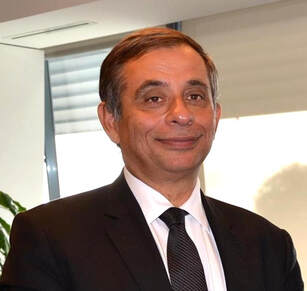
Henri Malosse
Henri Malosse is a French Politician and representative of the business world. he has been the 30th President of the European Economic and Social Committee (EESC) (April 2013 - October 2015).
Henri Malosse was born in Montpellier in a family of professors from Corsica. He graduated from the Sciences Po in 1976.
He began exploring the cultures of Germany, Eastern Europe and speaks Polish, Russian English and German.
Henri Malosse supported strongly the freedom's movement in Poland (Solidarnosc), met Lech Walesa in 1976 in Gdansk and was banned by the polish communist regime of Jaruzelski during 8 years.
He has been harassed by the secret police of the polish communist regime. His file can be found in the archivum of IPN in Warsaw.
He was involved in European policies for SMEs, inspiring the creation of the Euro Info Centres.
He worked to create the Delegation of the Assembly of French Chambers of Commerce and Industry to the European Union, and assumed its Direction six years later.
He also participated in the European Association of Small and Medium Enterprises at the European Parliament.
In 1995 he was appointed by the French government in the European Economic and Social Committee - EESC, the 5th Institution of the European Union, writing more than 50 reports including a critic of the posted workers directive. He was the Chair of the pre-accession EU-Bulgaria Consultative Committee, and of the Employer's Group from 2016 to 2013 - In 2013, He was elected the 30th President of the EESC.
His presidency took attention to the European media thanks to his critical position on EU stand to Greece during the financial crisis.
He signed a Protocol of cooperation with Martin Schulz, the President of the European parliament.
He was the first EU representative to participate at Euromaidan in Kiev in December 201 and to pay a visit to the 14th Dalai Lama in Dharamsala on 10 March 2014.
His political engagement raised a lot of criticism from the Communist party of China, their supporters in Europe. He was also put temporarily on a blacklist by the Russian federation.
On 15 October 2014, Henri Malosse received the National Order of the Legion of Honour by the former President of the French Republic, Valery Giscard d'Estaing, in Brussels.
Henri Malosse is a French Politician and representative of the business world. he has been the 30th President of the European Economic and Social Committee (EESC) (April 2013 - October 2015).
Henri Malosse was born in Montpellier in a family of professors from Corsica. He graduated from the Sciences Po in 1976.
He began exploring the cultures of Germany, Eastern Europe and speaks Polish, Russian English and German.
Henri Malosse supported strongly the freedom's movement in Poland (Solidarnosc), met Lech Walesa in 1976 in Gdansk and was banned by the polish communist regime of Jaruzelski during 8 years.
He has been harassed by the secret police of the polish communist regime. His file can be found in the archivum of IPN in Warsaw.
He was involved in European policies for SMEs, inspiring the creation of the Euro Info Centres.
He worked to create the Delegation of the Assembly of French Chambers of Commerce and Industry to the European Union, and assumed its Direction six years later.
He also participated in the European Association of Small and Medium Enterprises at the European Parliament.
In 1995 he was appointed by the French government in the European Economic and Social Committee - EESC, the 5th Institution of the European Union, writing more than 50 reports including a critic of the posted workers directive. He was the Chair of the pre-accession EU-Bulgaria Consultative Committee, and of the Employer's Group from 2016 to 2013 - In 2013, He was elected the 30th President of the EESC.
His presidency took attention to the European media thanks to his critical position on EU stand to Greece during the financial crisis.
He signed a Protocol of cooperation with Martin Schulz, the President of the European parliament.
He was the first EU representative to participate at Euromaidan in Kiev in December 201 and to pay a visit to the 14th Dalai Lama in Dharamsala on 10 March 2014.
His political engagement raised a lot of criticism from the Communist party of China, their supporters in Europe. He was also put temporarily on a blacklist by the Russian federation.
On 15 October 2014, Henri Malosse received the National Order of the Legion of Honour by the former President of the French Republic, Valery Giscard d'Estaing, in Brussels.

